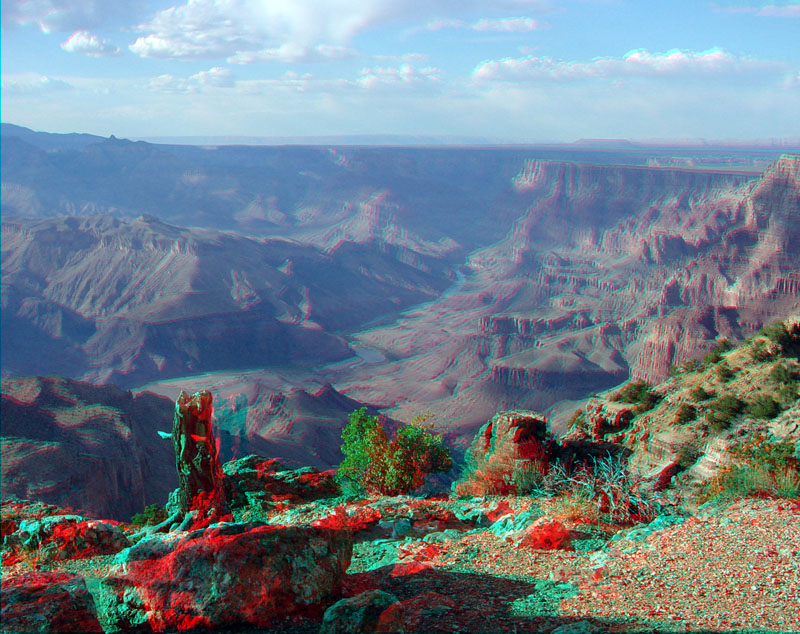| View from Desert View in Grand Canyon National Park. The Colorado River is visible near the center of the image. Rock formations of both the Precambrian and Paleozoic are visible in the canyon. Dark rocks consisting of Precambrian-age lava flows and intrusions, crop out below the Great Unconformity in the lower part of the canyon (just left of center in this image). The rocks are overlain by the nearly flat lying sequence of Paleozoic formations ranging from Cambrian to Permian age. Cliffs along the eastern side of the Grand Canyon are called the Facade of the Desert and the Palisades of the Desert. Permian-age Kaibab Limestone forms the rim of the Grand Canyon. Far off in the distant horizon are buttes and escarpments of younger Mesozoic formations including the Triassic-age Moenkopi and Chinle Formations (Billingsley, 2000). Click here to see a stratigraphic chart representing rock formations in the Grand Canyon region. |

